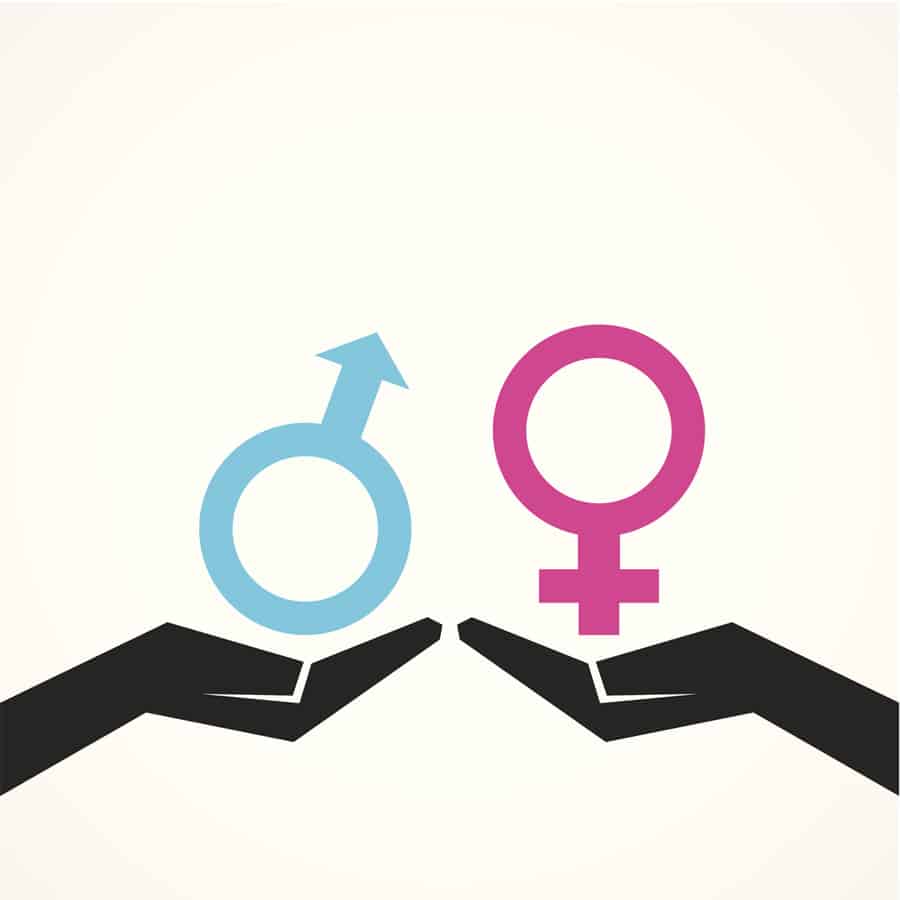
“Millions of women are living in fear, with long-term consequences for families and communities, and for all our efforts for peace and security, human rights and sustainable development,” UN Secretary-General António Guterres recently said in the context of the COVID-19 pandemic.
But with patriarchal norms standing in the way of women’s empowerment, we must absolutely focus on changing attitudes among men and boys towards gender equality, and crucially, when it comes to pursuing the women, peace and security agenda.
The landmark UN Security Council Resolution 1325 on Women, Peace and Security (WPS), adopted on October 31, 2000, seeks to address the disproportionate impact of conflict on women and girls and to recognize the under-valued role of women in conflict prevention and peace building. Yet 20 years later, implementing this resolution remains profoundly challenging.
One of the major roadblocks has been deeply ingrained gender norms, or traditional ideas about what it means to be a man or a woman, coupled with cultural and political conservatism – giving rise to both gender inequality and conflict in many societies.
For their part, conflict and crises themselves often give rise to more rigid gender norms and stereotypes that men, women, and those of other gender identities are expected to fulfil.
Conservative socio-political norms are deeply embedded in typically male dominated decision-making institutions at national and international levels, as well as within global governance institutions. Women who operate in these spaces struggle to be heard and experience pushback when trying to promote a women’s rights agenda. This has significant implications for the women, peace and security agenda.
The emphasis given to women’s rights within institutions of global governance is dwindling, with many arguing that backsliding on WPS commitments and progress is not just possible, but likely.
The impact of patriarchal gender norms is also evident at the community level. Patriarchal values of male family members can mean that women are actively either discouraged or blocked from accessing women empowerment programs, or have to get permission from their husband or father. Where women do participate, they can face stigma or even violence. Gender norms also often result in men being socially, culturally and politically conditioned to engage in physical violence in both the private and public spheres.
In the Sahel, for example, a strong incentive for men to join extremist groups stems from the notion that a ‘real man’ should protect and provide for his family. As one community member told us: “Anyone who refuses to fight to protect the community shouldn’t be seen as a man: he is a coward.”
Implementing the women, peace and security agenda therefore requires addressing deeply entrenched gender norms across different levels of society, in a way that gives men and women viable alternatives to violence. It also requires addressing community-level norms and expectations that justify the subjugation of women.
And yet, comprehensive engagement with men and boys is still largely missing from the agenda itself. Only two UNSC resolutions explicitly mention men and boys (one notes that men and boys can be enlisted as partners in the prevention of sexual and gender-based violence, while also recognising that men and boys can also be victims, while the other reiterates the importance of engaging men and boys in promoting women’s participation in conflict prevention and peacebuilding).
Thankfully, plenty of evidence does exist on why engaging with masculinities is good for women, peace and security. Peace activists have been working with men for many years, particularly in highly patriarchal and conservative societies.
In Afghanistan, women peacebuilding organizations have not only been working with male champions but also with conservative mullahs, which has led to the acceptance of these programmes in local communities, and therefore made it easier for women to participate.
In Tajikistan, the Zindagii Shoista (‘Living with dignity’) project by International Alert and local partners aims to protect at-risk women from the possibility of violence, by bringing the whole family together, including in-laws, to resolve conflicts and improve the role and lives of the wives and daughters within the family. Moreover, by fostering an idea of financial independence, Tajik women are now seen as valued members of society, in turn helping individual men within the family context, and communities at large, to change their attitudes towards violence against women and girls.
In the Great Lakes region of Africa, involving men in positive masculinities projects has also improved relations between men and women, at home and in the public sphere. In a project seeking to improve conditions for women cross-border traders and therefore fostering more peace in this region, the involvement of men (officials, border guards, husbands) has been crucial. Changes in attitudes of spouses regarding their wives being the primary bread winners improved the situation of women both at home and in society. “Before the project I had a bad perception of my wife and her business. I now understand that she works hard for our benefit. I am proud of my wife,” said Philippe, a farmer, who took part in the project.
Without minimizing the role of men in conflict and violence perpetration, men should be seen as agents of positive change. Support for gender equality and women’s agency in conflict should reach out specifically to a range of integral allies and resistors alike, including men and boys.
In doing so, agencies must be careful to ensure this does not divert hard-won support and money from women organizations working tirelessly on gender equality, or reinforce the unequal power of men and boys in already deeply patriarchal societies.
Simply put, if we don’t change men’s attitudes, then peacebuilding and gender equality cannot succeed. We must work together – NGOs, governments, policymakers and donors – to achieve this.
About the Author: Ndeye Sow is the Head of Gender at International Alert.


